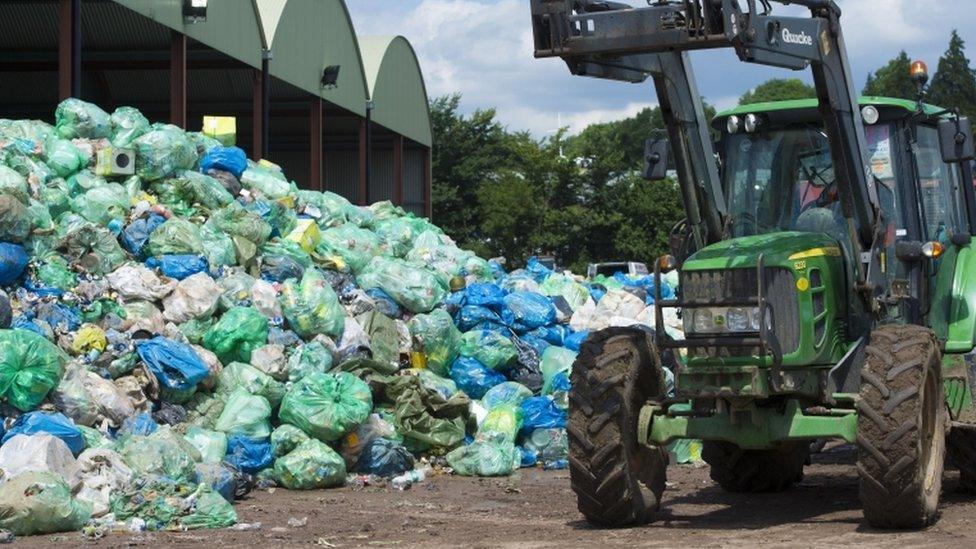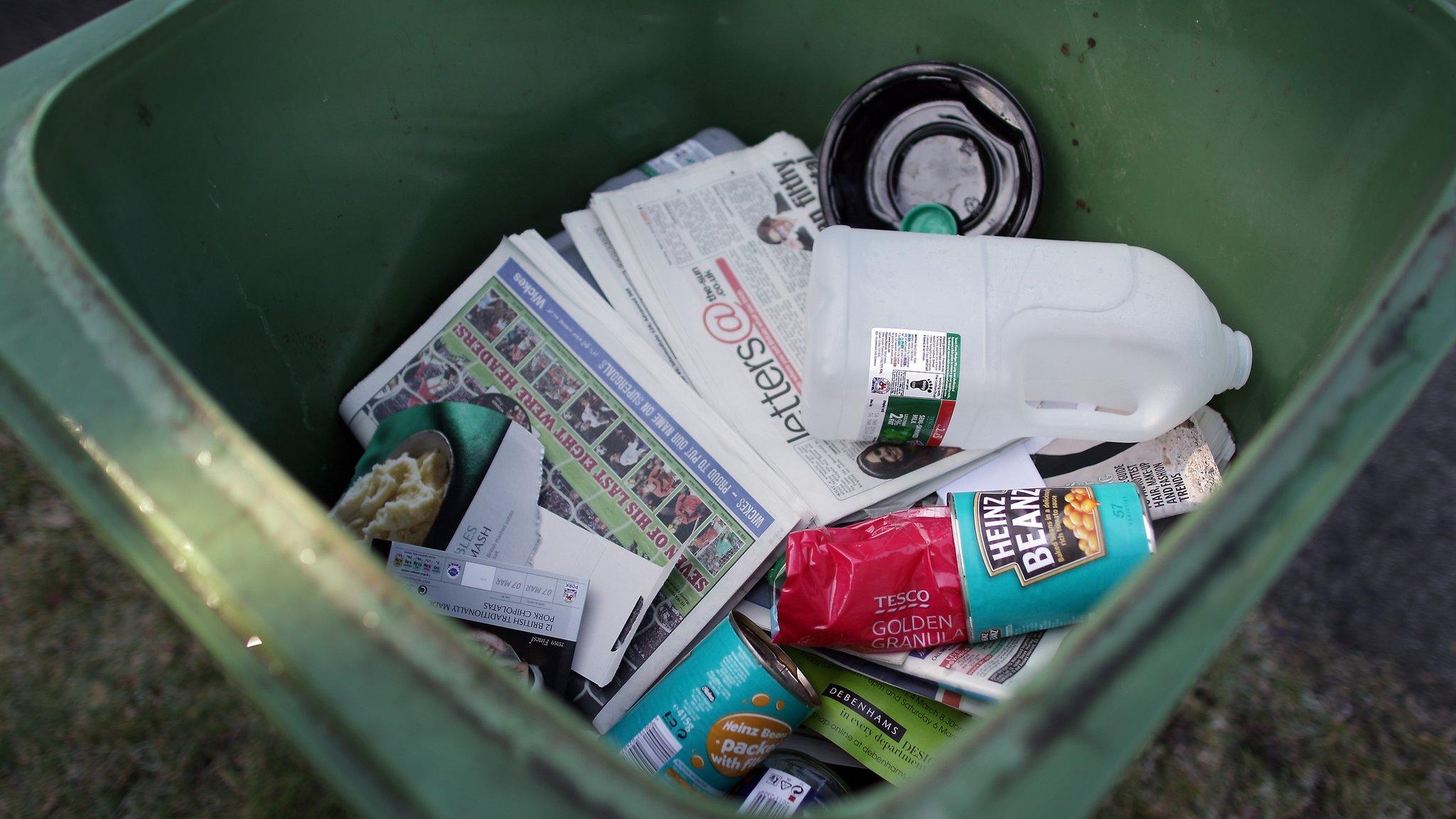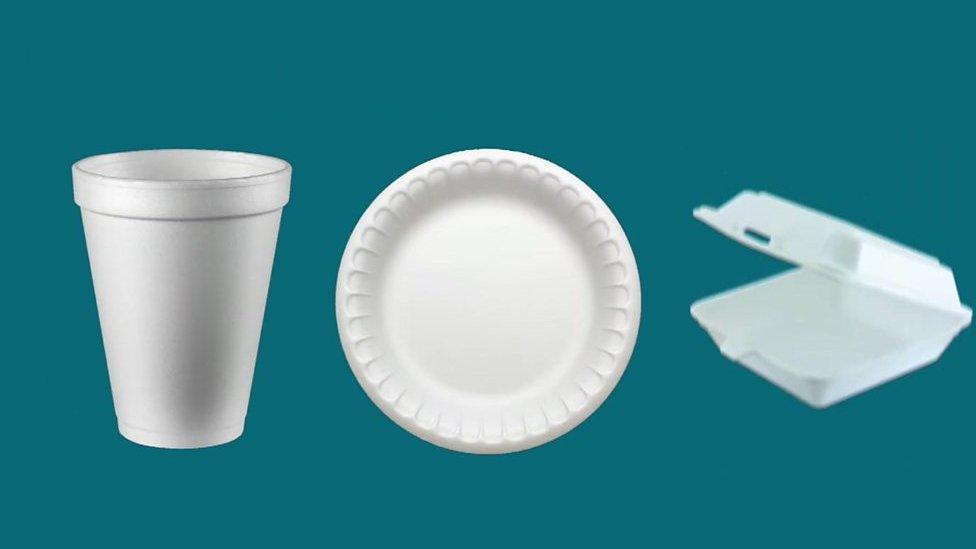UK recycling figure drops for first time, figures show
- Published

The level of household waste which is recycled in the UK has fallen for the first time, figures have shown.
The Department for Environment Food and Rural Affairs statistics, external show that 44.3% of household rubbish was recycled in 2015, down from 44.9% in 2014.
It is the first fall since 2010 when monitoring began, though is still the second-highest annual rate on record.
Waste company Biffa Municipal warned that recyclables that are not clean can cause "lorry-loads" to be rejected.
There is a European Union target for the UK to recycle at least 50% of household waste by 2020.
'Work harder'
Levels of waste recycled from England's homes fell in 2015, from 44.8% the previous year to 43.9%, the first time it has dipped below 44% since 2011.
In Northern Ireland, the rate fell from 42.5% in 2014 to 42% 2015.
But recycling levels rose in Scotland in the same period, from 41% to 42%, and in Wales from 54.8% to 55.8%.
David Palmer-Jones, chief executive of SUEZ recycling and recovery UK, called for a "polluter pays" approach to consumer goods which would see producers or manufacturers taxed according to how much material was not recyclable, with the cost added to the product.
"The tax would help pay for better household collection of recyclables and help address the huge funding challenge that local government faces," he said.
He said the company's analysis showed England's recycling rate had dropped for the first time in 16 years since separate records, external began in 2000.
Biffa Municipal's managing director Roger Edwards said: "We should all work harder to ensure that household recyclables such as paper, card, plastics, and metal and glass containers are as clean as possible when put out for collection, and that they aren't adulterated.
"Contamination can cause entire lorry-loads of recyclables to be rejected, at high cost to already-stretched councils."

What can be recycled?

Yes: (but check your individual council's policy as they vary)
Paper: cardboard boxes, newspapers, magazines, envelopes, junk mail, food and drink cartons including Tetra Pak
Plastic: margarine and ice cream tubs, yogurt pots, fruit punnets and ready meal trays
Bottles: drink, shampoo and detergent bottles
Tins and cans: both steel and aluminium, as well as aerosols
Kitchen foil and foil trays
Glass: all colours but no broken glass or ovenware
No:
Tissue and kitchen roll
Plastic wrap, cling film, bubble wrap and plastic bags
Coffee cups
Plastic and paper contaminated with food - including grease-stained pizza boxes (some councils may take clean pizza boxes) and paper food plates
Crisp packets and sweet wrappers
Polystyrene
Nappies
Soft plastic / metallic packaging like pet food pouches
What can be collected from households varies between councils.
Many other items including textiles, electronics, plastic bags and batteries can also be recycled at designated centres and some supermarkets.
- Published23 August 2016

- Published23 August 2016
